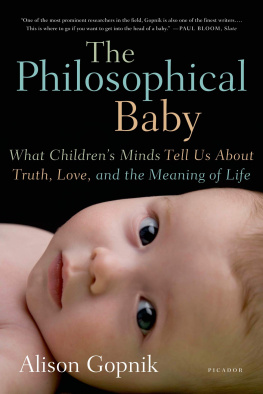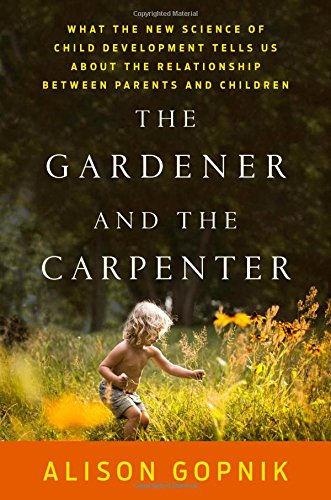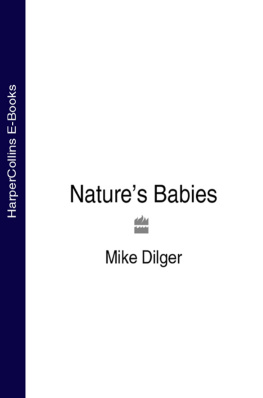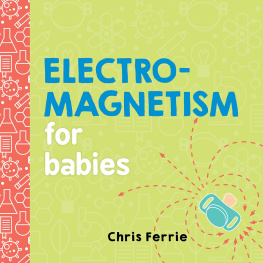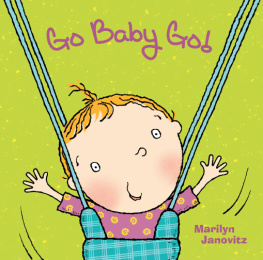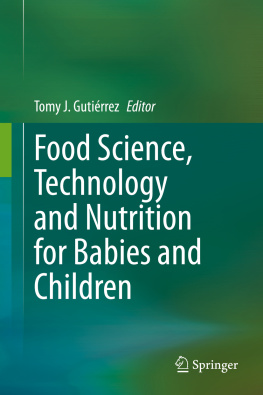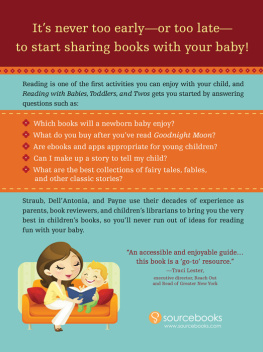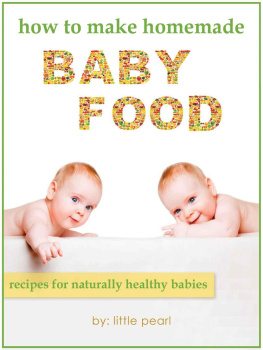The Philosophical Baby
What Childrens Minds Tell Us about Truth,
Love & the Meaning of Life
ALISON GOPNIK

About the Author

Alison Gopnik is an internationally renowned authority on childrens learning, the author of over 100 articles and the co-author of two books: Words, Thoughts And Theories (1998) and the acclaimed How Babies Think (2001). She has also written for the Times Literary Supplement, the New York Review of Books, the New York Times and was Associate Editor of Child Development (the leading journal in the field). She is a Professor of Psychology and Affiliate Professor of Philosophy at the University of California at Berkeley.
This eBook is copyright material and must not be copied, reproduced, transferred, distributed, leased, licensed or publicly performed or used in any way except as specifically permitted in writing by the publishers, as allowed under the terms and conditions under which it was purchased or as strictly permitted by applicable copyright law. Any unauthorised distribution or use of this text may be a direct infringement of the authors and publishers rights and those responsible may be liable in law accordingly.
Version 1.0
Epub ISBN 9781446483640
www.randomhouse.co.uk
Published by The Bodley Head 2009
2 4 6 8 10 9 7 5 3 1
Copyright Alison Gopnik 2009
Alison Gopnik has asserted her right under the Copyright, Designs and Patents Act 1988 to be identified as the author of this work
This book is sold subject to the condition that it shall not, by way of trade or otherwise, be lent, resold, hired out, or otherwise circulated without the publishers prior consent in any form of binding or cover other than that in which it is published and without a similar condition, including this condition, being imposed on the subsequent purchaser.
First published in Great Britain in 2009 by The Bodley Head
Random House, 20 Vauxhall Bridge Road,
London SW1V 2SA
www.bodleyhead.co.uk
www.rbooks.co.uk
Addresses for companies within The Random House Group Limited can be found at: www.randomhouse.co.uk/offices.htm
The Random House Group Limited Reg. No. 954009
A CIP catalogue record for this book is available from the British Library
ISBN 9781847921079 (TPB)
www.vintage-books.co.uk
Contents

2. Imaginary Companions:
How Does Fiction Tell the Truth?
3. Escaping Platos Cave: How Children, Scientists,
and Computers Discover the Truth
4. What Is It Like to Be a Baby?
Consciousness and Attention
5. Who Am I? Memory, Self, and
the Babbling Stream
6. Heraclitus River and the Romanian
Orphans: How Does Our Early Life Shape
Our Later Life?
TO BLAKE, MY PHILOSOPHICAL BABY BROTHER,
WITH PROFOUND GRATITUDE FOR THE TRUTH AND LOVE
HE HAS ALWAYS GIVEN ME
The Philosophical Baby
What Childrens Minds Tell Us about Truth, Love & the Meaning of Life
Introduction

A ONE-MONTH-OLD STARES at her mothers face with fixed, brow-wrinkling concentration, and suddenly produces a beatific smile. Surely she must see her mother and feel love, but what are seeing and feeling like for her? What is it like to be a baby? A two-year-old offers a hungry-looking stranger a half-chewed lollipop. Could a child this young already feel empathy and be altruistic? A three-year-old announces that she will come to dinner only if a place is laid for the Babies, the tiny purple-haired twins who live in her pocket and eat flowers for breakfast. How could she believe so profoundly in something that is just a figment of her own imagination? And how could she dream up such remarkable creatures? A five-year-old discovers, with the help of a goldfish, that death is irreversible. How could a child who cant yet read or add uncover deep, hard truths about mortality? The one-month-old turns into the two-year-old and then the three-year-old and the five-year-old and eventually, miraculously, turns into a mother with children of her own. How could all these utterly different creatures be the same person? All of us once were children and most of us will become parentswe have all asked these sorts of questions.
Childhood is a profound part of the human condition. But it is also a largely unexamined part of that conditionso taken for granted that most of the time we hardly notice it at all. Childhood is a universal fact, but when we do think about it, it is almost always in individual first-person terms: What should I do, now, about my child? What did my parents do that led me to be the way I am? Most books about children are like this, from memoirs and novels to the ubiquitous parenting advice books. But childhood is not just a particular plot complication of Irish autobiographies or a particular problem to be solved by American self-help programs. It is not even just something that all human beings share. It is, Ill argue, what makes all human beings human.
When we start to think about childhood more deeply, we realize that this universal, apparently simple fact is riddled with complexities and contradictions. Children are, at once, deeply familiar and profoundly alien. Sometimes we feel that they are just like usand sometimes they seem to live in a completely different world. Their minds seem drastically limited; they know so much less than we do. And yet long before they can read or write they have extraordinary powers of imagination and creativity, and long before they go to school they have remarkable learning abilities. Their experience of the world sometimes seems narrow and concrete; at other times it looks far more wide-ranging than adult experience. It seems that our experiences as children were crucial in shaping who we are. And yet we all know that the path from child to adult is circuitous and complex, and that the world is full of saints with terrible parents and neurotics with loving ones.
The younger children are, the more mysterious they are. We can more or less remember what it was like to be five or six, and we can talk with school-age children on a reasonably equal basis. But babies and toddlers are utterly foreign territory. Babies cant walk or talk, and even toddlers, well, toddle, and yet science, and indeed common sense, tells us that in those early years they are learning more than they ever will again. It may be hard to see just how the child is father to the man. Yet it is even more difficult to trace the link between the I writing this page and the seven-pound bundle of fifty years ago, all eyes and forehead, or even the later thirty-pound whirlwind of tangled sentences, intense emotions, and wild pretend play. We dont even have a good name for this age range. This book will focus on children under five and Ill sometimes use the word babies to talk about anybody younger than three. For me babies means that particularly adorable combination of chubby cheeks and funny pronunciation, though I recognize that many three-year-olds themselves would reject the description vigorously.

